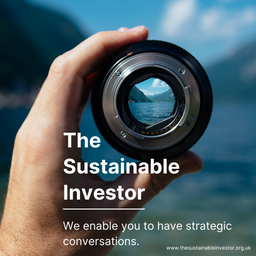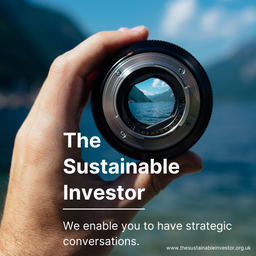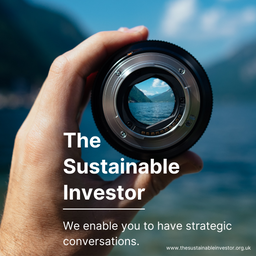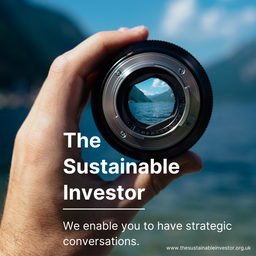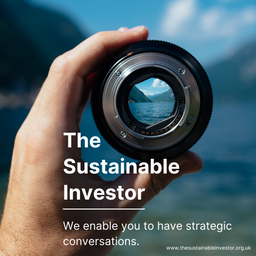
Sunday Brunch: key thoughts from 2024
Sustainable Investing is changing. Thoughts on the changes we have seen in 2024 and hopes for 2025.
“If you don't know where you want to go, then it doesn't matter which path you take.” Lewis Carroll from Alice in Wonderland
Sustainable Investing is changing. We are starting to understand that there are some things that companies can deliver on. But that there is also a long list of things where we need action from governments, setting better rules and regulations on behalf of the wider society.
We are also starting to understand that companies will act when it's in their long term financial interest to do so. And so, if we want change to happen, we need to be willing and able to talk about the financial case.
One thing we are still struggling with is the long term nature of much of the investment needed. For some industries, the obvious ones are electricity generation and electric vehicles, the change is already upon us. But for many others the real impact is yet to fully play out.
The sustainability transitions will create risks and opportunities for companies, but the financial consequences of many of these will only become obvious years out in the future. But that shouldn't stop companies preparing now. Waiting until the challenge is in front of you will probably be too late. And it makes little if any financial sense. Just look at the share price of many European automotive companies if you don't believe me.
My hope is that in 2025 the first two factors (the limits of what companies can deliver, and the fact that change can make financial as well as environmental and social sense) will become more embedded. I also hope that in those industries where the real financial impact is still years away, companies will start to see that preparing now makes financial sense.
This is my last blog for 2024. I wish you all a happy new year, and may 2025 bring you all your dreams and hopes.
Rebuilding stewardship requires a return to first principles
Hans-Christoph Hirt, who many of you will know from his time at Hermes, has written a great article for the IPE December magazine on how we need to rediscover stewardship, by returning to first principles. What is it we really want to deliver? And will our actions actually get us to where we want to be?
Taking just one of his interesting thoughts - how can we best apply the concept of universal ownership?
He makes the point that while the benefits of action on this would largely flow to asset owners, the costs fall on their asset managers. Which creates a misalignment. Especially as active asset managers are generally focused on creating alpha over a relatively short period (up to a max of c. 5 years), whereas by definition the benefits of acting as a universal owner are very long term.
Is this a 'service' that we are willing to pay asset owners a fee supplement for? Recognising that good engagement does not come cheap.
I would really encourage you to read the article in full. While most IPE articles are pay-walled, you can generally read a small number for free. Make this one of those.
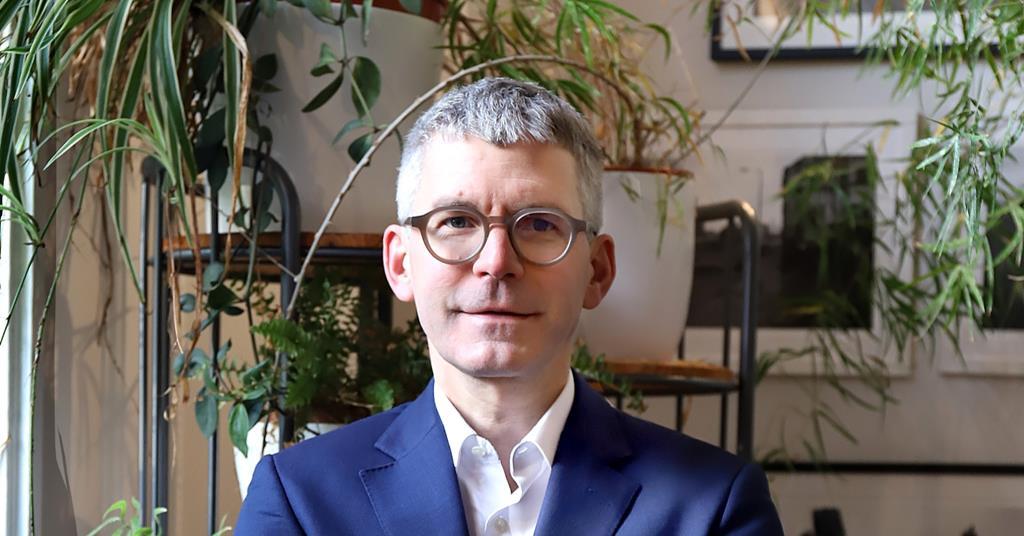
Han-Christoph's work aligns with many of the thoughts that I wanted to revisit - now that the end of 2024 is rapidly approaching.
Let's start with limits on what companies can deliver. Back in July, after the European elections moved the region to the right, we asked if this would stop the green transition. Our short answer was probably not. We have consistently argued that once the green transitions make financial as well as social and environmental sense, they will be much harder to reverse. And many transitions are already there or close.

But, we should not underestimate the importance of politicians in delivering change. They need to set the rules and targets, and put in place the financial support (and if required penalties). Until that is done, it's really hard for companies to act on their own.
Sticking with the European example, I would argue that this is why we have seen some progress on EV's and green electricity generation, but very little in agriculture. While the regulation in transport and electricity is not perfect, it is giving companies the visibility to invest. By contrast, Europe seems unable to agree on a vision for how green agriculture might work, no mind put meaningful rules in place.
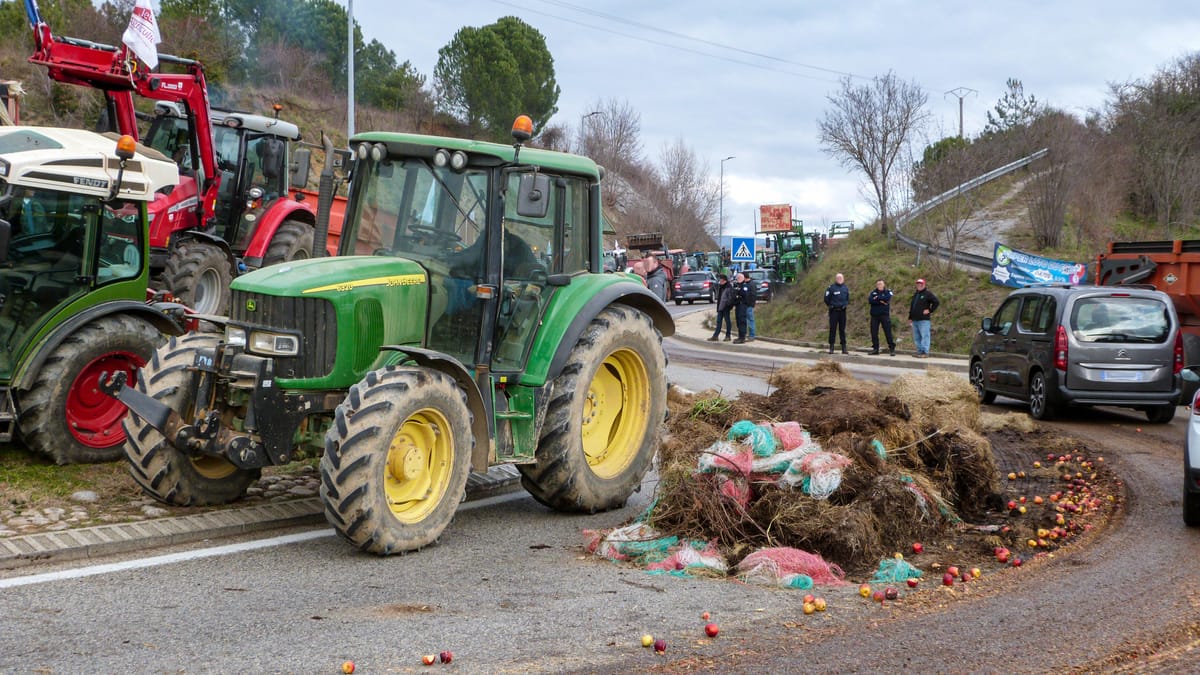
More recently we wrote about how we need to better link sustainability goals with financial motivations. As we said in the blog...
"we don't work hard enough to link sustainability to business strategy and long term financial value creation. My pitch is simple. If we continue to primarily focus on the societal and moral arguments for improved sustainability, then we make it easy for companies and governments to fob us off."

In this blog we quoted extensively from a recent Cambridge Institute for Sustainability Leadership report entitled 'Survival of the Fittest: From ESG to Competitive Sustainability'. Another piece of Christmas reading for you.

And to finish up, back in May 2023 we wrote about how financial markets actually are long term focused (despite what many people will tell you), but that they believe that the pace of the sustainability transitions will be so slow that the business as usual scenario is still financially optimal.
In it we reviewed the transcript of a podcast interview with Ariel Babcock, formerly head of Research at FCLT Global.

Many analysts argue that short termism from the financial markets is one of the reasons why financial markets are “failing” to solve the sustainability challenges. And you can see the appeal of this. The implication is that if only we can get the finance industry to think more long term, companies will naturally start to fix some of society's biggest challenges.
But another possible explanation is that the financial markets just don't believe us when we say that we want change. They look at what our governments are actually doing, not just saying. And what consumers do when they actually spend money, rather than when they fill in questionnaires and surveys. And in both cases they often struggle to see a financial case for leading the charge.
Which brings us full circle back to 'there are actions we need governments to take before we can ask companies to act'.
One last thought
We need governments and companies to do more than just set targets. We argue that sustainability targets without a meaningful delivery strategy are just goals (or even worse, just dreams). And without good disclosure we cannot judge if they are deliverable (or not).

Please read: important legal stuff.

